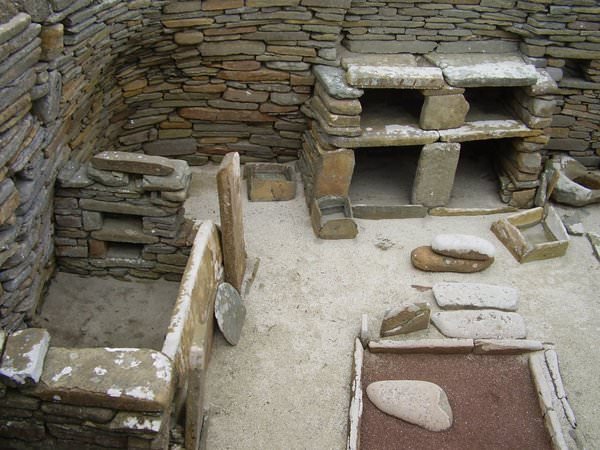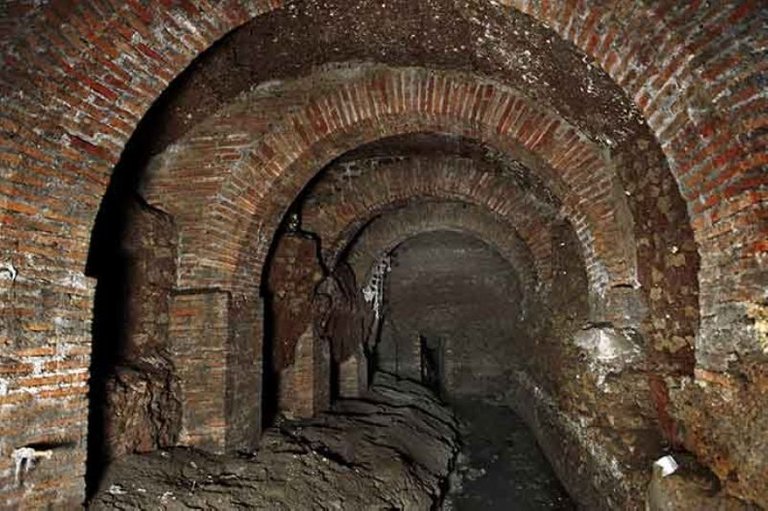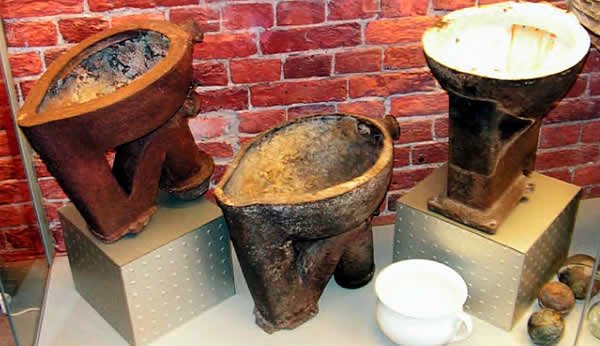We are embarrassed about talking about this and discussing it, and talking about this topic is considered indecent. However, hardly anyone will begin to argue that the topic is very important.
About 130 grams of feces are released from the body of the average person daily. Imagine how many people live on the planet - and you will understand how important the toilet was for the whole of humanity. At the moment about a third of the world's population do not have access to the toilet. The result is a huge number of deaths from intestinal diseases and various kinds of parasites.
Thousands of years ago, all people defecated in the forest or in the field, but with the invention of agriculture and handicrafts people began to settle in cities. The problem of feces "surfaced" to the surface. About 5000 years ago (during the Neolithic period), someone invented the first toilet in Europe. He was found in the village of Skara-Brey in Scotland. At the same time in many houses of the city of Mohenjo-Daro, located in the territory of present-day Pakistan, there were toilets with cesspools (confirmed excavations).

Neolithic island village of Skara Bray
We owe the Romans the creation of a sewage system. In Rome, 144 public toilets were built, consisting of long benches with holes that were located above the so-called "Big Cloaca" - a system that led the city through sewage to the river. But most of the city's population continued to walk around the need for a night pot and pour it straight out of the windows onto the street. All this was accompanied by a stench, which stood in the background in the streets.
Of course, these feces flowing through the streets could not but affect the health of the townspeople. Very soon the stench became intolerable and the diseases spread. An era began, for the designation of which came up with a whole theory - "the theory of miasms." This has been going on for more than one century.
The creator of the device, which somehow resembled a toilet bowl, is the English poet John Harington, who served at the court of Elizabeth I. He created a device that drained water from a large reservoir located on top. But the toilet was not held in high esteem until 1775, until London watchmaker Alexander Cummings developed a water seal that neutralized an unpleasant odor and received a patent for it. This same principle of the toilet is used to this day.
In the era of industrial revolution, the population of European cities has increased dramatically and the sewage system has not cope with the volume of feces. In Europe came cholera - a disease that leads to death from dehydration due to severe diarrhea. The epidemic covered London in 1854. A doctor named John Snow has guessed that people are not ill because of a bad smell, but because of contaminated drinking water, which receives sewage contaminated with bacteria cholera. But for another 50 years, doctors did not accept his idea, but adhered to the "miasma theory".
At the beginning of the 20th century, sewerage facilities were actively constructed and toilet paper was produced. Also, a centralized sewage system was created, which we still use, but 2.4 billion people on the planet still do not use the toilet. 800,000 children under the age of five each year die from diarrhea.
Friends, what do you think about this? Do you think that it is possible to solve this problem and if it is possible then how? Leave your comments under this post. Thank you for attention!

